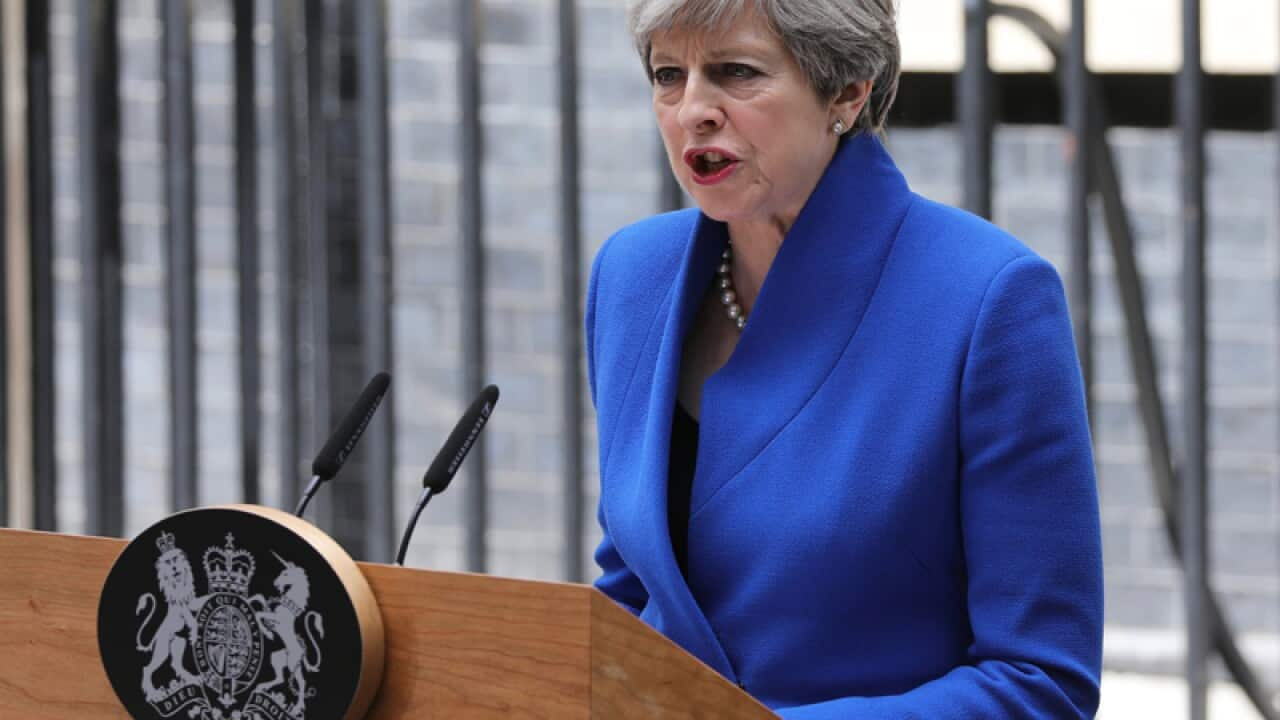May's office was forced to backtrack late Saturday after announcing that an outline deal had been agreed with Northern Ireland's Democratic Unionist Party (DUP) to form a government, admitting that talks were still ongoing.
Defence Secretary Michael Fallon, a member of May's Conservative party, told the BBC: "What we do have now is an understanding of the outline proposals that would underpin that working agreement."
But the confusion reinforced a sense of chaos at the heart of government just days before Britain starts the complex and fraught negotiations on leaving the European Union.
Related reading

Britain's May seeks deal to cling to power
May has struggled to reassert her authority after losing her parliamentary majority in Thursday's snap election, which she had been under no pressure to call.
The Sunday newspapers carried reports that Foreign Secretary Boris Johnson was set to launch a bid to oust her, although he dismissed them as "tripe".
Former party leaders have warned any immediate leadership challenge would be too disruptive, but most commentators believe May cannot survive in the long-term.
Former Conservative finance minister George Osborne, who May sacked after taking office after the Brexit vote last June, said she was now a "dead woman walking".
DUP deal
With the new government set to present its legislative program to parliament on June 19, the clock is ticking on efforts to bolster the Conservatives' position after they won just 318 of the 650 seats in the House of Commons.
DUP leader Arlene Foster is to meet with May in London on Tuesday to discuss their arrangement, Sky News reported.
Fallon said it would not be a formal coalition, instead the DUP's 10 MPs would support the government "on the big things" such as the budget, defence issues and Brexit.
He stressed he did not share their ultra-conservative views on issues such as abortion and homosexuality, which have caused disquiet among many Conservatives.
Related reading

Who are the DUP, the UK's new kingmakers?
More than 600,000 people have signed a petition condemning the alliance, saying it is a "disgusting, desperate attempt to stay in power".
There have also been concerns that joining forces with the hardline Protestant party threatens London's neutrality in Northern Ireland, which is key to the delicate balance of power in a province once plagued by violence.
Foster told Sky News her party had had "very good discussions" with the Conservatives on Saturday and these would continue while refusing to say what she will demand from any deal.
"We will of course act in the in the national interest and do what is right for the whole of the UK," she said.
'Discredited, diminished'
May has shown little public contrition for her gamble that backfired but was forced to accept the resignations of her two closest aides - reportedly a requirement by cabinet colleagues for allowing her to stay in office.
Fallon said the new government would require "a more collective approach", adding that he expected Conservative lawmakers to "rally behind" May when they meet next week.
But the newspapers were unsparing, with The Observer writing: "Discredited, humiliated, diminished. Theresa May has lost credibility and leverage in her party, her country and across Europe."
Both the Mail on Sunday and the Sunday Times newspapers reported that aides to Johnson, a leading Brexit campaigner, were taking soundings about a potential leadership challenge.
"Mail on Sunday tripe - I am backing Theresa May. Let's get on with the job," Johnson responded on Twitter.
Watch: Theresa May on UK election
Softer Brexit approach?
The prime minister spoke to German Chancellor Angela Merkel on Saturday and confirmed she was ready to start Brexit talks "as planned in the next couple of weeks".
European Council President Donald Tusk has warned there was "no time to lose" after May began the two-year countdown to Britain's withdrawal by triggering Article 50 of the EU's Lisbon Treaty on March 29.
May had called the election to give her a mandate for her strategy to take Britain out of Europe's single market in order to end mass migration from the continent.
But there is speculation she may now be forced to soften her approach, which had included a threat to walk away without a new trade deal in place.
Fallon said the government wanted a "new partnership with Europe that is careful about the trade we already do with Europe, that comes to some agreement on the immigration that we can accept from Europe".














